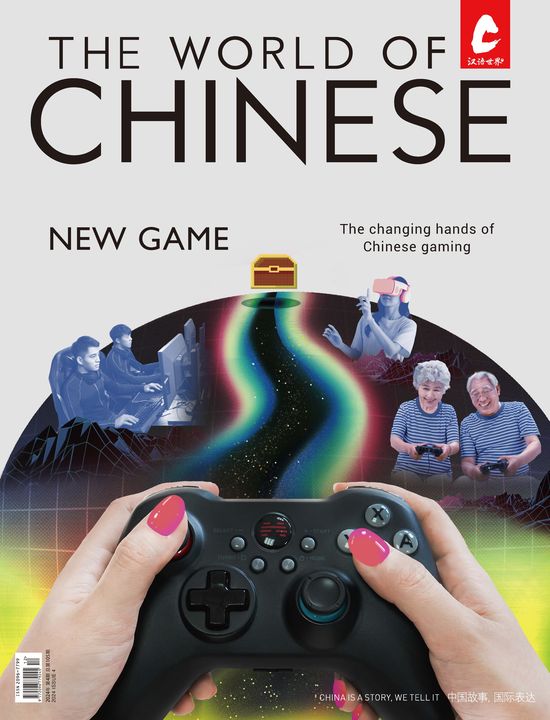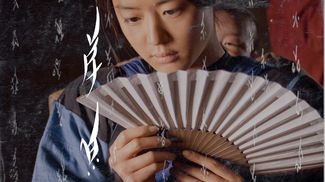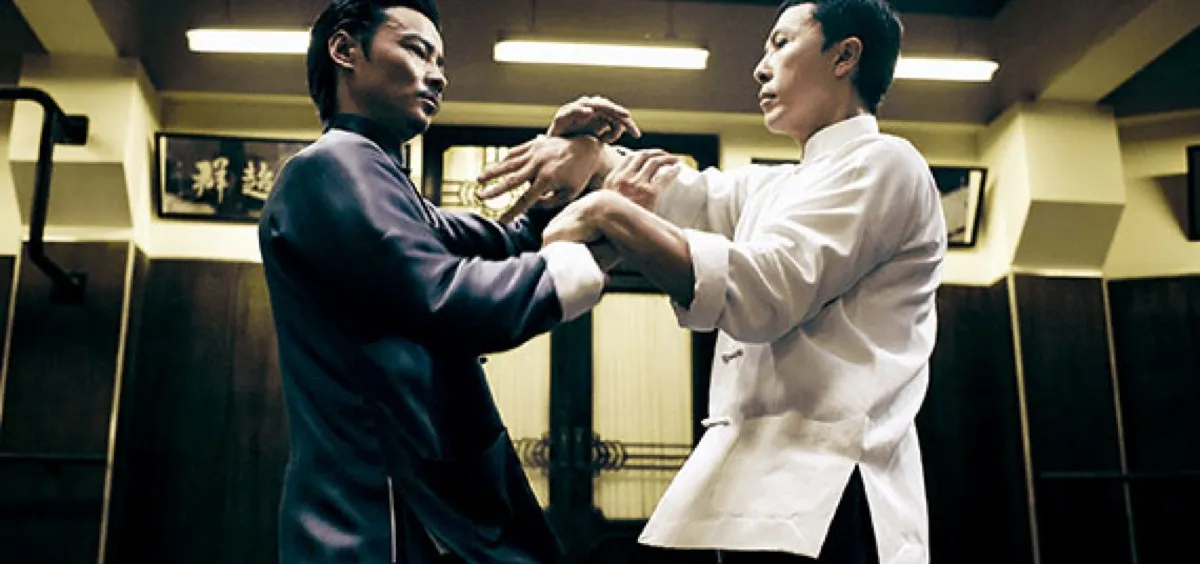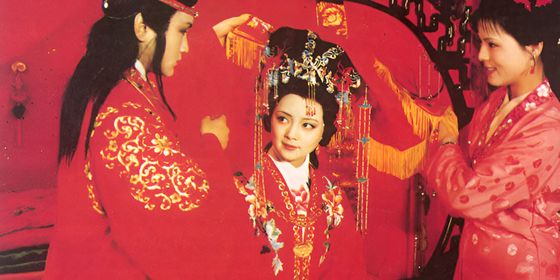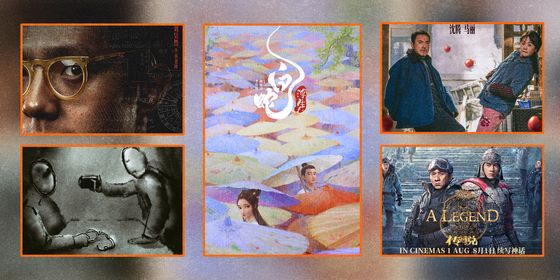When The Baddest Man on the Planet meets the Master of Bruce Lee
In terms of its kung fu stunts, action movie Ip Man 3 hits the pinnacle of acting scenes in the Ip Man franchise, thanks to action choreographer Woo-Ping Yuen (袁和平). You may recall Yuen as the guy who gave life to The Matrix, Kill Bill, and countless other action masterpieces.
Outside the fight sequences, however, the film is something of a letdown. Director Wilson Yip (叶伟信) clearly had the ambition of portraying Ip Man (Donnie Yen) as a multi-layered character, but all he managed to accomplish was to paint Ip Man as a one-dimensional image of a perfect saint sitting on his altar. While this may be harsh on Wilson Yip, at least he makes a kung fu master dance the cha-cha.
Ip Man 3 came into the market fully prepared. It not only invited the retired boxer Mike Tyson to make an action movie cameo, but also reserved a character for Bruce Lee (Danny Chan), Ip Man’s pupil in real life. It may have overprepared though; a scandal regarding Ip Man’s box office receipts exposed an 8.52 million USD lie in its gross of 156 million USD, but gossip aside, how does this movie actually perform on the screen?
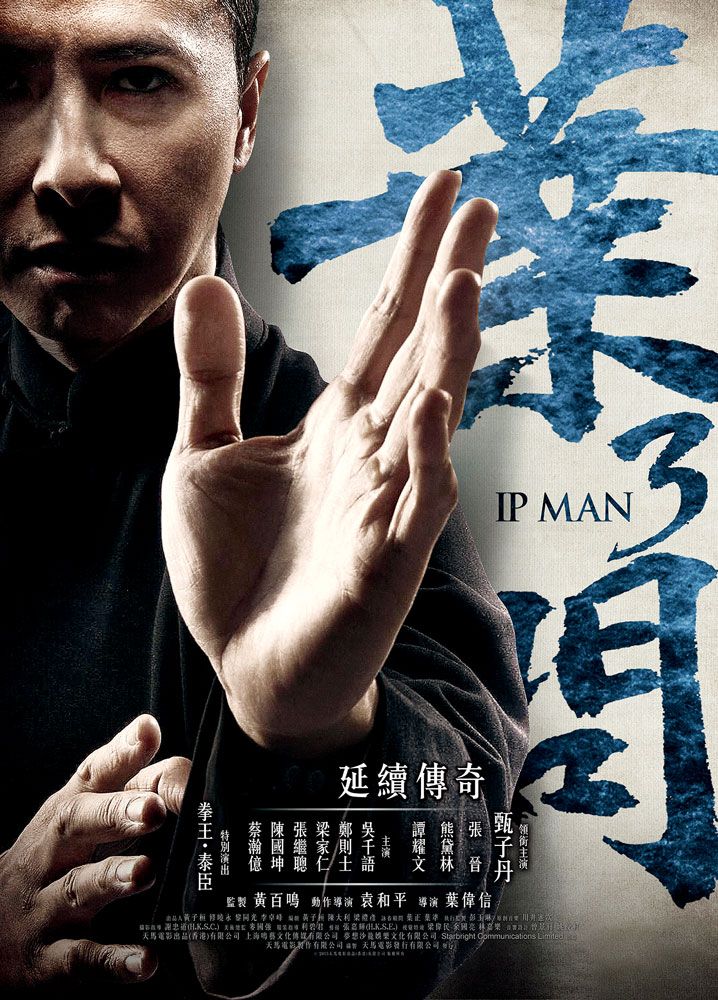
The story takes place when Ip Man, his wife, and their younger son are settling into Hong Kong. A crooked property developer Frank (Tyson) covets the piece of land occupied by a primary school, which happens to be the school Ip Man’s son, Ip Ching, attends. Thus begins the rivalry between Ip Man—the guardian of the primary school and, of course, embodiment of justice—and Frank, a powerful gangster that buys off the head of the police department and local hooligans.
This rivalry reaches a climax when Ip Man challenges Frank to a duel. The threatening presence of Tyson forms a disturbing contrast to the slim Ip Man. Ip Man in real life was only 5-foot-4, but Donnie Yen hits 5-foot-9, but this doesn’t stop him from looking like an ant about to be run over by a boulder. The threeminute duel is reminiscent of Tyson’s famous first-round knock-outs: “Three minutes. If you last, I’ll let you be.”
Another story running in parallel is Ip Man’s relationship with Cheung Tin-chi (Zhang Jin), who claims also to be a descendent of the Wing Chun school of martial arts. Although Cheung demonstrates kung fu skills as impressive as Ip Man’s, the latter is honored as the grandmaster, while Cheung is a nobody that makes a living running rickshaws. Cheung’s bitterness toward Ip Man and his ambition to beat him continue to ferment. In one scene, as Ip Man and Cheung together beat back the local hooligans that kidnap school kids, Ip Man stands on an outcrop protecting his son in an image that is used on the front page of a local newspaper, while Cheung is taken as one of the hooligans.
Arguably, however, Cheung is the most well-realized character in the movie. The conflicts between his pride and sensitive ego, his menial origins and yearning for success, and his sense of morality that sometimes gives way to money, give this character much more authenticity than the “perfect” Ip Man.
Near the end of the film, when Cheung publicly challenges Ip Man to a duel to prove who is the authentic Wing Chun master, everyone is present except for Ip Man. Ip Man is, unbelievably, merrily dancing the cha-cha with his wife Cheung Wingsing (Lynn Hung) who had become seriously ill. These camera shots are unbelievably garish: Ip Man’s wife’s affected laughter call for goose bumps and Ip Man dances like a monkey (thanks to his dance teacher Bruce Lee, the Hong Kong cha-cha champion in 1958, perhaps?).
Ip Man: Excuse me…
Qǐngwèn……
请问……
Bruce Lee: Master Ip, what are you doing here?
Yè Shīfu, nǐ lái zhèli gàn shénme?
叶师傅,你来这里干什么?
Ip Man: I’m looking for Mr. Chan.
Wǒ xiǎng zhǎo Chén lǎoshī.
我想找陈老师。
Lee: You want to learn to dance? I dance better than him. I’ll teach you. And you can teach me kungfu!
Gēn Chén Lǎoshī xué tiàowǔ ma? Tiàowǔ wǒ zuì shàncháng! Wǒ jiāo nǐ tiàowǔ, nǐ jiāo wǒ dǎ gōngfu.
跟陈老师学跳舞吗?跳舞我最擅长!我教你跳舞,你教我打功夫。
Ip Man: Sure, now.
Hǎo a, xiànzài.
好啊。现在。
Lee: Okay. Why didn’t you accept me as a disciple last time?
Hǎo a. Duì le, wèi shénme shàngcì bú shōu wǒ zuò túdi?
好啊。对了,为什么上次不收我做徒弟?
Ip Man: Put down your thoughts. I didn’t say I wouldn’t accept you. I opened the door, and you thought I was driving you away.
Fàngxià nǐ de xiángfǎ. Wǒ méi shuō bú shōu nǐ zuò túdi. Wǒ kāimén, nǐ yǐwéi wǒ gǎn nǐ zǒu.
放下你的想法。我没说过不收你做徒弟。我开门,你以为我赶你走。
Director Yip preaches a lot through Ip Man’s wife, who makes him say twice that, “Nothing is more important than being around your loved ones.” It wouldn’t sound so annoying if not for Lynn’s arguably clumsy acting. Throughout the movie, she’s little more than a beautiful poker face, and the former model comes off a trifle wooden.
Ip Man 3 perhaps best portrays the smaller characters in the movie rather than Ip Man himself. The film tries to stretch too many lines of story but ends up being scattered and mundane. If you are looking for some kung fu fights that give an adrenaline rush, go for it. If you are looking for an all-round classic martial arts film, however, you can give this one a miss.
“Ip Man 3” is the cover story from our newest issue, “Agriculture”. To read the whole piece, become a subscriber and receive the full magazine. Alternatively, you can purchase the digital version from the iTunes Store.
